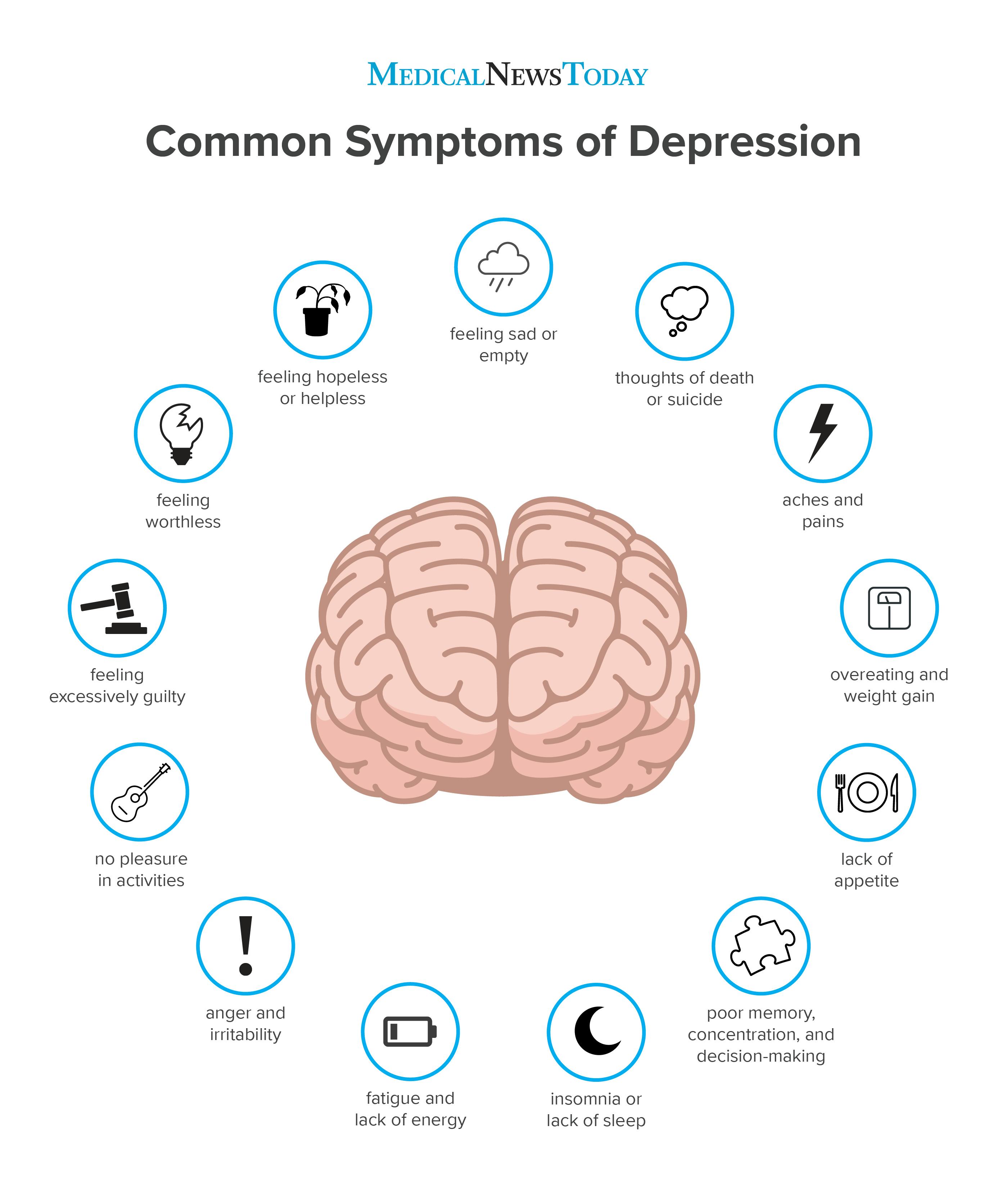Depression: Definition, Pathophysiology, Causes, Symptoms, Treatment and MCQs for NEET, GPAT, CSIR NET JRF
“Depression is an effective emotional disorder and mental illness characterized by sadness of mood, poverty of ideas and psychomotor retardation.”
1.] Depression can occur at any age.
PATHOPHYSIOLOGY: –
1.] Biogenic amine hypothesis: Decreased brain levels of the neurotransmitter’s norepinephrine, serotonin (5-HT), and dopamine may cause depression.
2.] Postsynaptic changes in receptor sensitivity: Studies have demonstrated that desensitization or down regulation of norepinephrine or 5-HT1A receptors may relate to onset of antidepressant effects.
3.] Dysregulation hypothesis: This theory emphasizes a failure of homeostatic regulation of neurotransmitter systems, rather than absolute increases or decreases in them activities. Effective antidepressants may restore efficient regulation.
4.] 5-HT/norepinephrine link hypothesis: This theory suggests that 5-HT and norepinephrine activities are linked, and that both the serotonergic and noradrenergic systems are involved in the antidepressant response.
5.] The role of dopamine: Several studies suggest that increased dopamine activity in the mesolimbic pathway contributes to antidepressant activity. A disruption of brain derived neurotrophic factor expression in the hippocampus may be associated with depression.
CAUSES: –
Following are the causes of Depression:
- Increased stress
- Sadness
- Due to certain medication
- Death or loss of family member loved ones
- Genetic factors
- Abuse i.e., past physical or sexual abuse can cause depression later in life
- Stressful life events
- Serious illness
SYMPTOMS: –
Following are the symptoms of depression:
- Loss of interest or pleasure in hobbies and activities
- Thoughts of death and suicide or suicide attempts
- Body acne
- Low energy
- Fatigue
- Change in appetite and weight
- Uncontrolled emotions
- Hopeless outlook

The above image is taken for education purpose only from medicalnewstoday.com
TREATMENT: –
Following are the antidepressant medication given to the patient suffering from Depression:
- Citalopram (Celexa)
- Escitalopram (Lexapro)
- Fluoxetine (Prozac)
- Fluvoxamine (Luvox)
- Paroxetine (Paxil)
- Sertraline (Zoloft)
MULTIPLE CHOICE QUESTIONS: –
1.] Depression is an?
a. Emotional disorder
b. Mood disorder and mental illness
c. Personality disorder
d. Psychotic disorder
2.] What are the signs and symptoms of depression?
a. Loss of interest or pleasure in hobbies and activities
b. Thoughts of death or suicide, or suicide attempts
c. Body aches, low energy and fatigue
d. All of the above
3.] Depression can occur at which age?
a. 20-30
b. 30-40
c. 40-50
d. All of the above
4.] A major cause of depression in women is?
a. Increased stress
b. Sadness
c. Jealousy
d. Competitiveness
5.] Which of these should you avoid if you’re depressed?
a. Supportive relationship
b. Exercise
c. Major decision
d. All of the above
6.] What is postpartum depression?
a. Depression during pregnancy
b. Depression after childbirth
c. Depression due to breastfeed
d. None of the above
7.] What causes depression?
a. Environmental factor
b. Genetics
c. Biological factors
d. All of the above
8.] What is the treatment of depression?
a. Prescription medication (antidepressants)
b. Psychotherapy (talk therapy)
c. Self-care
d. All of the above
9.] Depression and anxiety disorder are same?
a. True
b. False
10.] How should you respond to a depressed person?
a. Be upbeat
b. Listen
c. Both (a) and (b)
d. None of the above
SOLUTION: –
1.] (b) Mood disorder and mental illness
2.] (d)
3.] (d)
4.] (a) Increased stress
5.] (c) Major decision
6.] (b) Depression after childbirth
7.] (d)
8.] (d)
9.] (b)
10.] (b) Listen
List of Successful GPATINDIAN CANDIDATES
Participate in Online FREE GPAT TEST: CLICK HERE
Participate in Online FREE Pharmacist TEST: CLICK HERE
Participate in Online FREE Drug Inspector TEST: CLICK HERE
Participate in CSIR NET JRF Mock Test
REFERENCES: –
1.] Mental Health and Psychiatric Nursing by Deepak Patel and Gokul Patel; 6th Edition; Page No. 198 – 209.